Supporting Earthquake-Affected Communities in Morocco
Six months after a 6.8-magnitude earthquake shook Morocco—the country’s deadliest since 1960 and the most powerful in more than a century— we’re still on the ground working with local authorities and partners to provide support in the areas affected by the quakes.


When the quake hit, we immediately sent an Advance Emergency Medical Team to perform an assessment and create the infrastructure needed to respond. Thanks to supporters like you, we were able to distribute non-food items, winterisation and hygiene kits to people affected by the earthquake in remote Taroudant province.
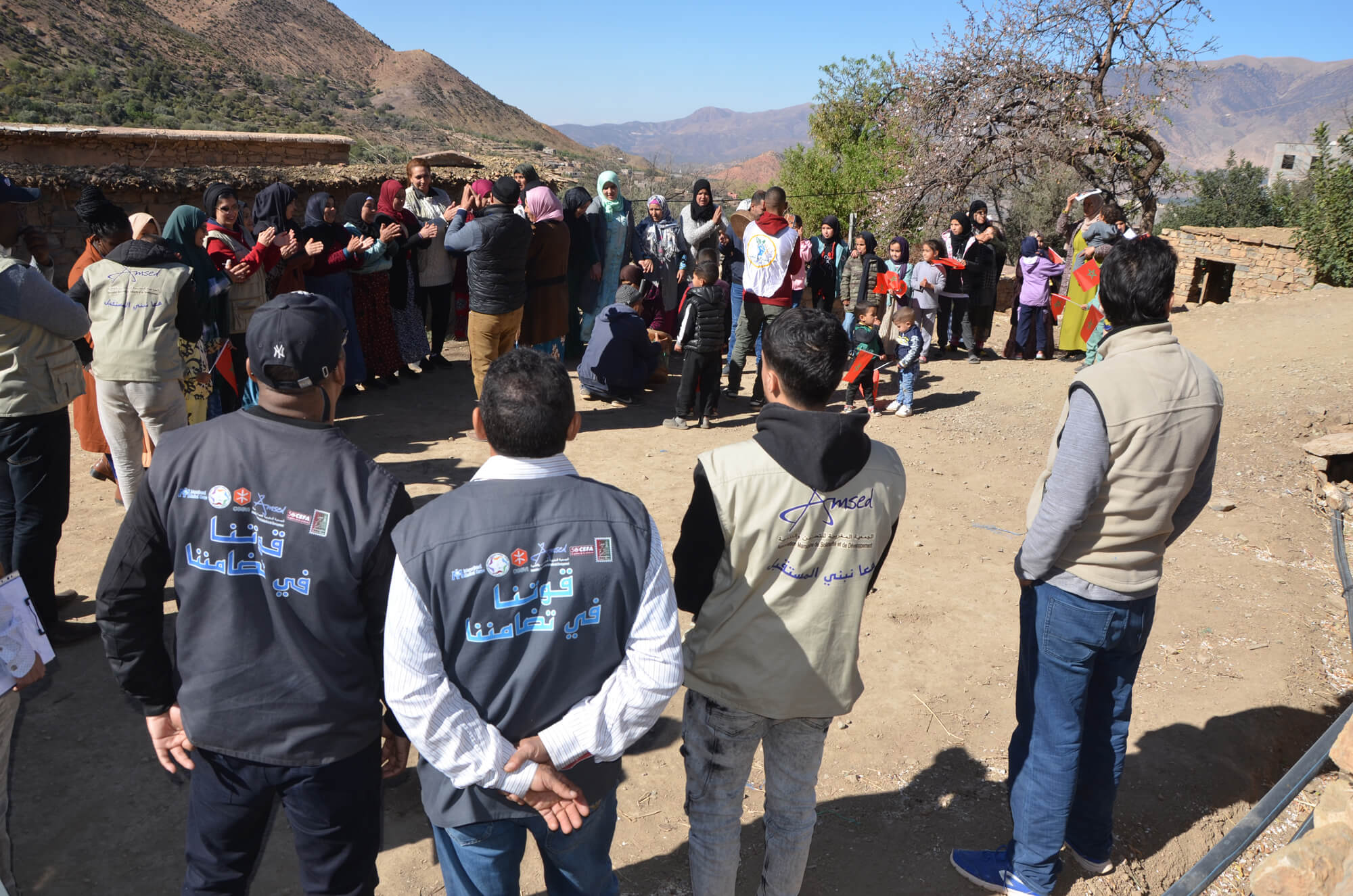
Six months later, we are continuing to support earthquake survivors by providing health and hygiene awareness-raising sessions, child-friendly spaces and more.
Protecting the Children of Gaza
Every child deserves a chance. To safeguard the well-being and rights of children affected by conflict in Gaza, we are providing child protection and mental health services for children at our field hospital, while training caregivers to recognise signs that a child needs mental health support.
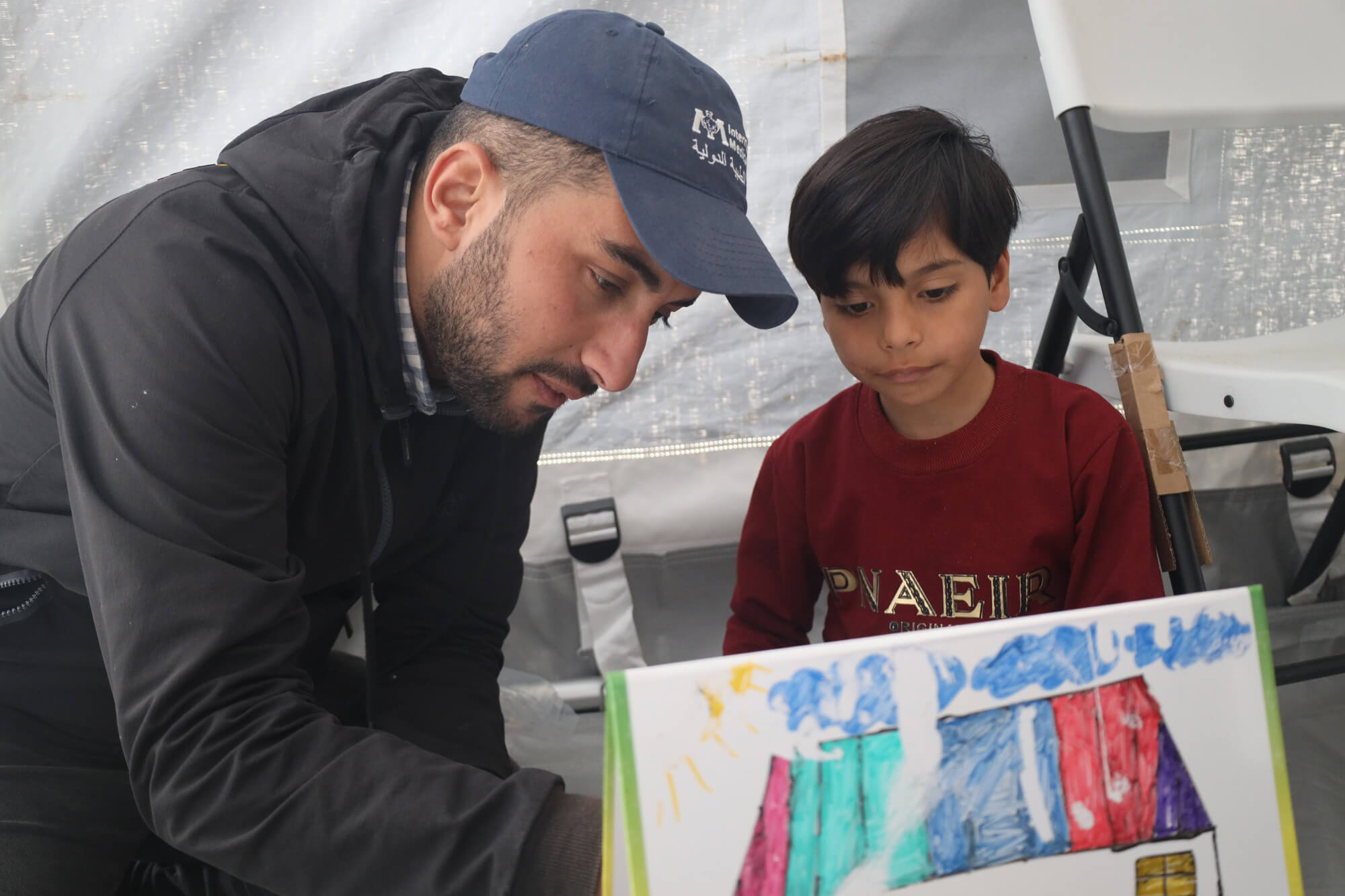
Our 140-bed field hospital in Gaza has been helping up to 800 civilians per day, providing a range of services that include surgical care for trauma, physical therapy and rehabilitation, comprehensive emergency obstetric and newborn care, screening and treatment of malnutrition, protection, advanced mental health care, gender-based violence prevention and support, water, sanitation and hygiene (WASH) services and more. It is equipped with two operating theatres, 24 emergency room beds, 96 post-operative care beds, nine labour and delivery beds, and 11 intensive-care unit beds. The field hospital also includes a laboratory, ultrasound machines, blood-transfusion services, a blood bank and fully stocked pharmacy.
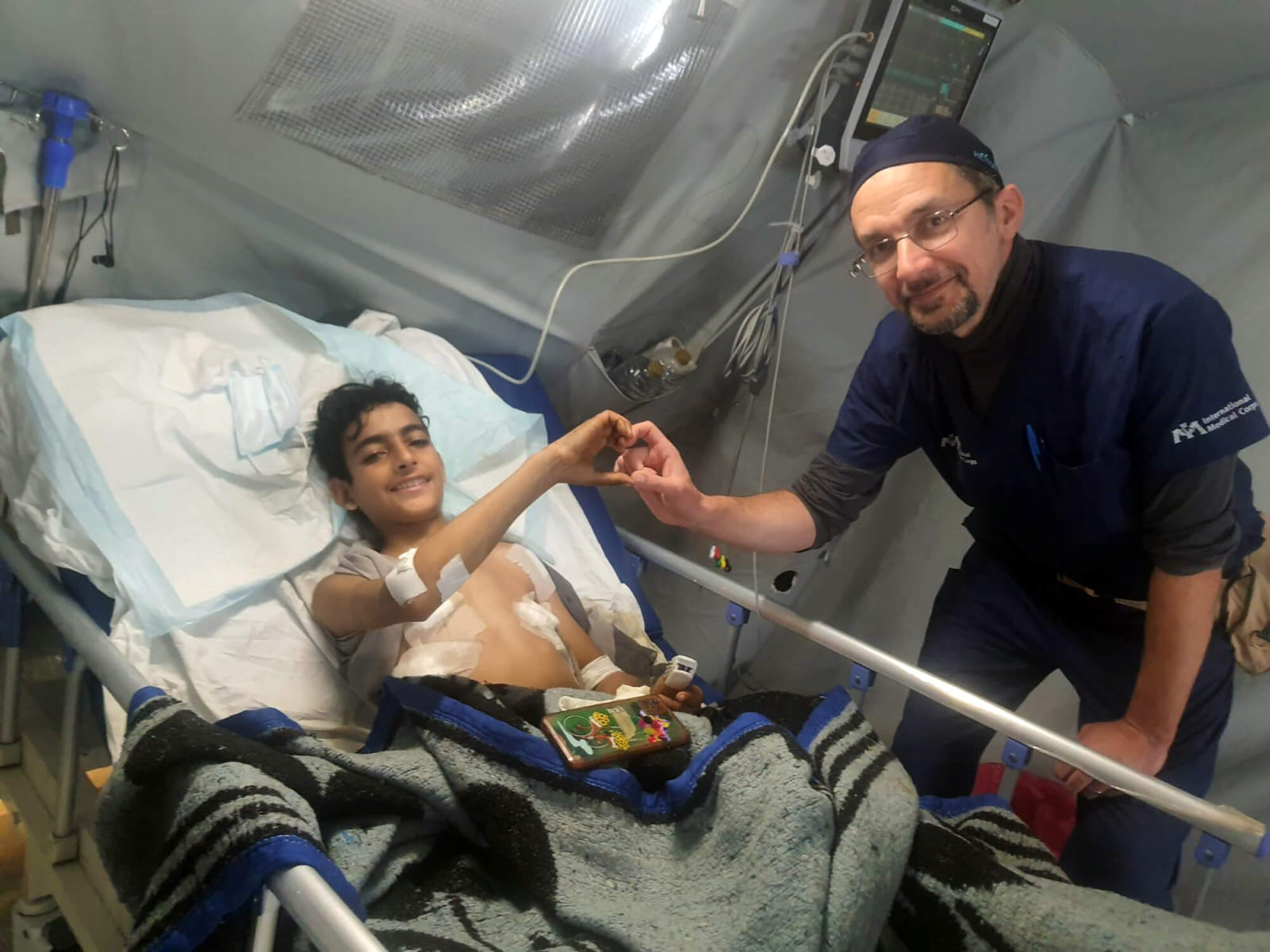
Since opening in early January, our mental health team in Gaza has hosted nearly 1,300 children in our child-friendly space, helping them to better cope with adversity and promoting their overall well-being amid the turmoil.


Welcoming the US Ambassador to Pakistan
US Ambassador to Pakistan, Donald Blome, recently visited a refugee village in Khyber Pakhtunkhwa, where he met with our staff and local community members and discussed the impact of our programmes focused on gender-based violence (GBV) prevention and response, mental health and livelihoods development.



We work in several districts of Khyber Pakhtunkhwa province, providing sexual and reproductive health services, mental health and psychosocial support, assistance to survivors of GBV and more for Afghan refugees and vulnerable Pakistanis.
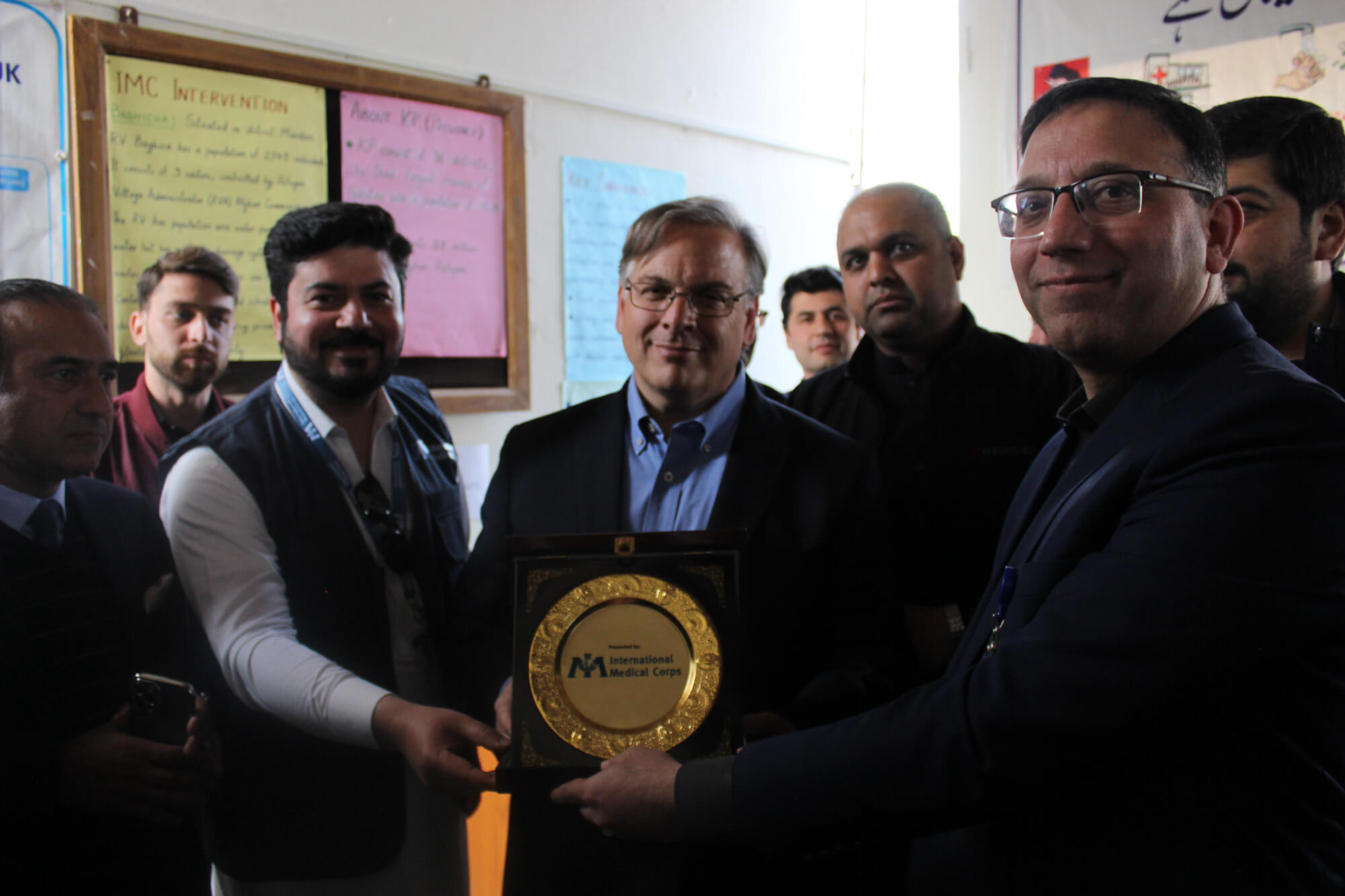
Providing Lifesaving Services in Cameroon
We have been working in Cameroon’s Northwest region since 2008. Despite challenges posed by armed conflict, our staff is delivering vital health services to underserved communities throughout the area.
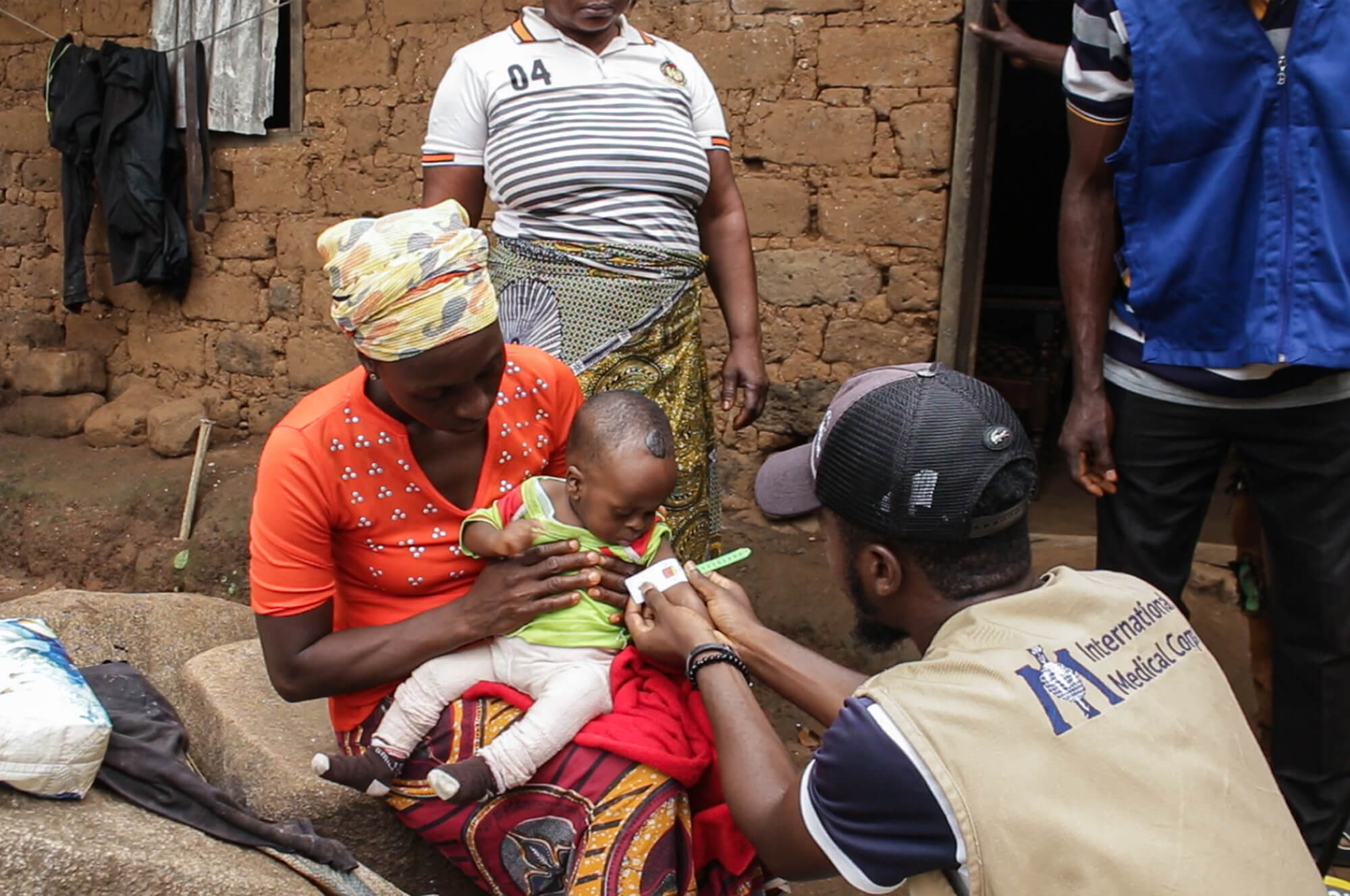
International Medical Corps supports several healthcare facilities in Cameroon and provides medical care directly through static health facilities, community health services and mobile outreach. Our services include preventative and curative medical consultations, reproductive health services, medical supplies and equipment, and construction and rehabilitation of health facilities.


Supporting Hospitals in Ukraine
With nine operational centres located throughout Ukraine, we have been supplying, strengthening and rehabilitating local healthcare facilities across the country—including those in active conflict zones—to ensure they have the supplies they need to withstand attacks and continue operating.




We’re providing Children’s Clinical Hospital №7 in Kyiv, Ukraine, with deliveries of critically needed equipment. And we’re working with partners to deliver medical services through mobile medical units, bringing healthcare—including medical specialists, pharmacists and medicine—to villages in need.
Reaching Remote Villages in Yemen
Yemen is experiencing one of the world’s largest humanitarian crises. Nine years of conflict, compounded by economic collapse, natural disasters and the COVID-19 pandemic, have left more than two-thirds of the country struggling to put food on the table and access essential services.
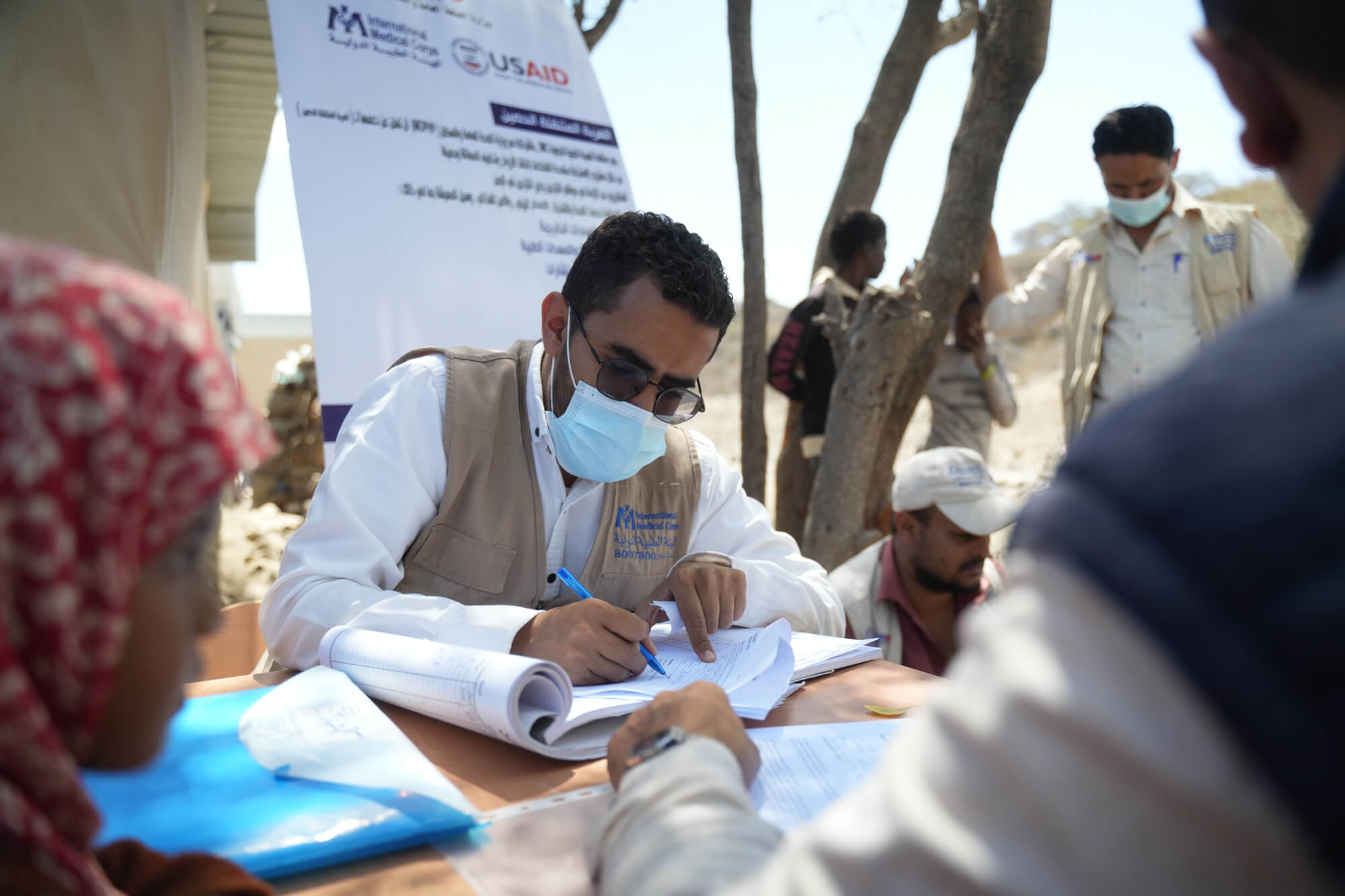
In addition to other services, we send mobile medical units to reach remote villages that do not have access to healthcare. Our team recent visited the Al-Hussein district, where they provided nutrition and health programmes, such as community-based management of acute malnutrition.


Celebrating International Women’s Day Around the World
March 8 was International Women’s Day, and in addition to highlighting how we invest in women’s futures through our programmes and training, our teams around the world hosted activities to commemorate the holiday.


From Venezuela to Pakistan, our teams recognised women on the front lines of humanitarian response, working in challenging and often dangerous environments. We are proud to have such strong and dedicated women on our team—and we are grateful for their service to humanity.


Learn more about International Medical Corps
Follow International Medical Corps on Facebook, Twitter, Instagram, LinkedIn, YouTube and TikTok.
Are you a journalist looking for information?
International Medical Corps is a global first responder that delivers emergency medical and related services to those affected by conflict, disaster and disease, no matter where they are, no matter the conditions. We also train people in their communities, providing them with the skills they need to recover, chart their own path to self-reliance and become effective first responders themselves. Established in 1984 by volunteer doctors and nurses, we are a nonprofit with no religious or political affiliation, and now have more than 8,000 staff members around the world, 96% of whom are locally hired. Since our founding, we have operated in more than 80 countries, and have provided more than $4.2 billion in emergency relief and training to communities worldwide.
Our staff includes experts in emergency medicine, infectious disease, nutrition, mental health, maternal and infant health, gender-based violence prevention and treatment, training, and water, sanitation and hygiene, all within the humanitarian context.
To arrange an interview on or off the record, contact our Media Relations team at media@internationalmedicalcorps.org.
